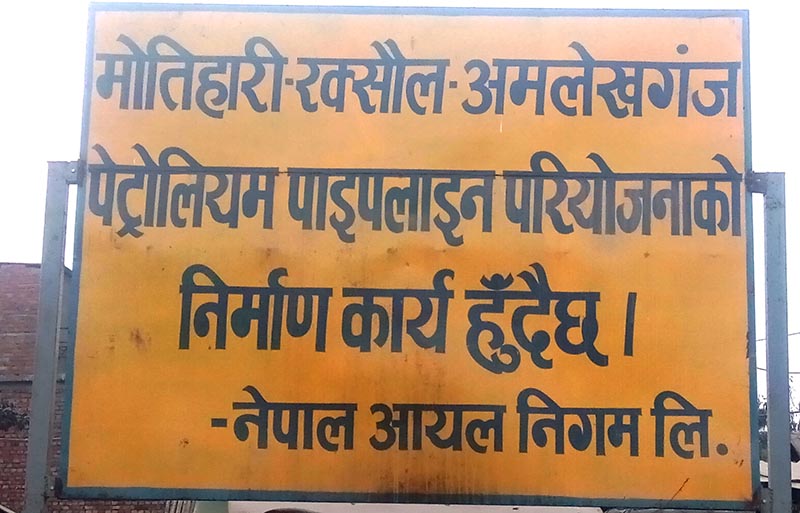Tree clearance nod for pipeline project
Kathmandu, January 20
Construction of the Motihari-Amlekhgunj petroleum pipeline project is expected to gain pace following the Cabinet’s recent nod to clear necessary trees along the conserved areas that fall within the project route.
Though almost 70 per cent of pipe-laying works of the cross-border pipeline have been completed along the Nepal side, the pipe-laying works along almost 10-kilometre area that falls within the Parsa Wildlife Reserve and a few other community forests had been halted owing to the lack of approval from the government to cut down the trees. However, the tree cutting process will begin shortly, thereby expediting the project,
according to Bhanubhakta Khanal, the coordinator of the oil project.
Earlier in November last year, the Ministry of Forests and Environment had given a nod to the environmental impact assessment of the cross-border pipeline project allowing Nepal Oil Corporation (NOC) to cut down almost 6,000 trees in the conserved areas along the project’s route. However, the project was waiting for the Cabinet’s approval to cut down necessary trees for the project.
As a majority of the work of the project has already been completed, Khanal believes that the Cabinet’s nod to clear necessary forest encroachments along the project’s route will ensure timely completion of the oil project.
If everything goes as planned, construction of the much-hyped Nepal-India Oil Pipeline Project will be completed within March, giving respite to the country which has been relying on tankers for petroleum supply, said Sushil Bhattarai, deputy managing director at NOC.
The 37.2-kilometre long project involves laying 10.75-inch diameter pipes and will have the capacity to supply 200,000 litres of oil per hour. The fuel pumping facilities will be located in Motihari, India. NOC plans to conduct the trial of the project by supplying diesel in the first phase.
The INR 2.75-billion petroleum pipeline project is expected to be instrumental in ensuring uninterrupted supply of petroleum products
in Nepal and reduce fuel transportation costs.






